Legal with Leah: The questions around data centers
Leah Curtis joins this Legal with Leah to talk about what data centers mean for local communities and how to stay engaged in the development process
Read MoreIn the case O'Connor v. Eubanks, the question is, can a state be sued in federal court when it takes a property?
Ohio Farm Bureau is asking the highest court in the land take on a case to help Ohio landowners. In this Legal with Leah, OFBF Policy Counsel Leah Curtis has the details of the brief the organization filed in the O’Connor v. Eubanks case.
Listen to Legal with Leah, a podcast featuring Ohio Farm Bureau’s Policy Counsel Leah Curtis discussing topics impacting farmers and landowners.
Ty Higgins [00:00:00] When I’m asked what Ohio Farm Bureau does, I explain we work for the best interest of our members in the matters of regulation, legislation and litigation. Talking about the latter of those causes today.
Ty Higgins [00:00:20] Talking litigation once again, this time, though, at the highest level, the U.S. Supreme Court. Ohio Farm Bureau asking it to take on a case to help Ohio landowners. Tell us about this particular case and what the status is.
Leah Curtis [00:00:31] So this case is O’Connor v. Eubanks. And this is a takings case involving a citizen in Michigan suing the state of Michigan. And so the basic facts are that, Mr. O’Connor had some unclaimed funds. He made a claim for those. They didn’t provide him interest. And so he’s looking to recover and receive compensation for taking of his property. Remember that the U.S. Supreme Court, unlike your local court, gets to choose which cases it hears. And so we are in that stage right now. Mr. O’Connor has filed his appeal, asking the court to hear the case. And we have filed an amicus brief in hopes of helping to persuade the court to take that case.
Ty Higgins [00:01:08] In this case, though, a lot more than just those basic facts involved.
Leah Curtis [00:01:12] Well, as we’ve talked before, the U.S. Supreme Court, when a case gets there, usually it’s less about the facts of the case and more about the legal questions. If it wasn’t a hard legal question, it wouldn’t get to the Supreme Court. So in this case, the question is, can a state be sued in federal court when they take property? The Sixth Circuit and the lower court opinion said, no. As long as there was a way to go to state court for that, because of the 11th Amendment and state sovereign immunity, you can’t take a state into federal court for a takings claim. So that would mean any takings claim against the state or a state agency would have to go into state court. So while what’s being sought here to be recovered, of course, is important individually, the big principle here is can you go to federal court to protect your constitutional rights under the Fifth Amendment?
Ty Higgins [00:02:00] So why is Ohio Farm Bureau interested specifically in this case?
Leah Curtis [00:02:04] In large part we’re interested because of eminent domain. I keep saying takings because this isn’t real property that was taken. But that’s the concern that we have. And we work a lot on issues related to eminent domain, and something called inverse condemnation specifically. And that is where the government takes your property. They don’t go through the court system, they don’t pay you for it, and you have to take them to court to get your compensation. We in Ohio appear to be the only state in the country that doesn’t have a claim for inverse condemnation in our law. Instead, you have to go through this convoluted and drawn out process called a writ of mandamus. So if instead the federal courts were available to our landowners, they would have access to that inverse condemnation claim more streamlined approach. Federal law allows for attorney’s fees, usually, more regularly than in state court. And so if you have those two things together, a streamlined legal process and the possibility of attorney’s fees, it’s probably more likely that you can afford to bring a takings case into court, and have the opportunity to have your rights protected.
Ty Higgins [00:03:06] Ohio Farm Bureau involved with another eminent domain case at the US Supreme Court level several years ago. How does that case connect to this one?
Leah Curtis [00:03:13] So that case was an important first step in getting into federal courts with takings claims. Prior to that case, court precedent had made it practically impossible to take any takings claim into federal court unless you sued the federal government. That was Nick v. township of Scott. That was a case against a township. And so the decision in that case opened the door to takings claims coming into federal court. But subsequently, cases that have been decided since then have said it can’t come to federal court if it’s against a state. And so we have a situation now where if a lower level government, like a county or a township or city takes property, that claim can go to federal court. But if a state takes it, it has to go to state court. So hopefully this case can make an opportunity to open that federal courthouse door a little wider and let more claims come in.
Ty Higgins [00:04:02] Have we, as an organization, been involved with some cases in the past that could have benefited from having this option?
Leah Curtis [00:04:07] We are involved with a lot of eminent domain cases, over the years, and I would say a lot of them could benefit from having this federal option. But particularly there was a case, in the mid 2000s about the Grand Lake Saint Marys spillway expansion. And when they expanded that spillway, it flooded regularly and frequently, over 90 different landowners. And so it took them nearly 10 years to get that case to a final point and a place where they got compensation for that land. If they’d had the federal court option that may not have taken that long; they may have been able to move through that much quicker. And so, we supported that case through an amicus brief at our state level. And the law firm that represented those landowners, Vorys, Sater, Seymour and Pease has also assisted us with our US Supreme Court case.
Ty Higgins [00:04:55] So the big question, when are we going to know whether the court has accepted this case or not?
Leah Curtis [00:04:59] Well, it’s going to take a little time. The court runs a little slow. The term for the Supreme Court is from October to June, so we’re getting to the end of that term. It’s unlikely they would decide before the end, so we’ll probably hear sometime next fall. If they would accept the case, the argument will probably be sometime early next year, and then a decision would be sometime around this time next year.
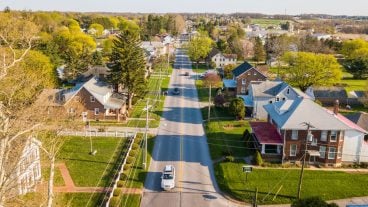
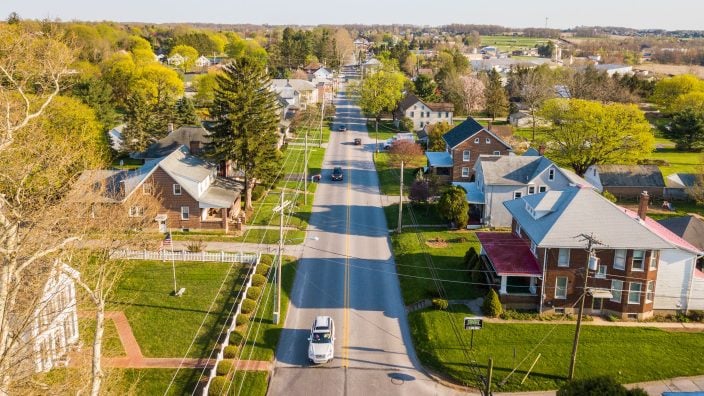
Leah Curtis joins this Legal with Leah to talk about what data centers mean for local communities and how to stay engaged in the development process
Read More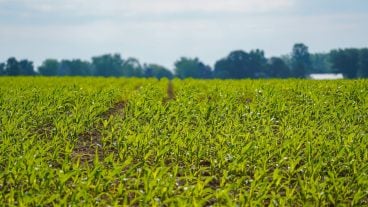
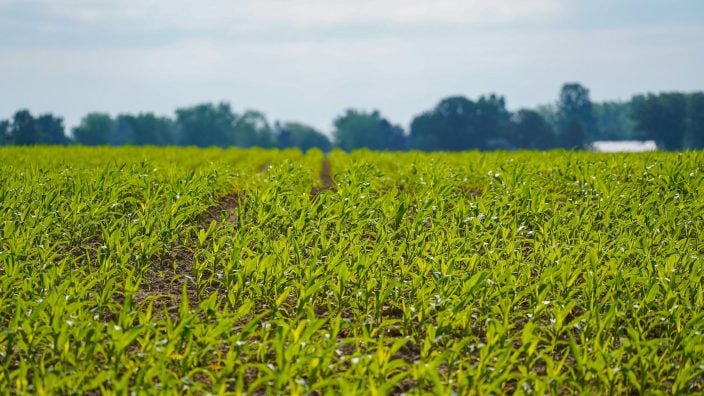
Ohio Farm Bureau advocated for a change in the law to allow family members and employees to handle pesticides while under the supervision of a licensed applicator. The rules around HB 10 are being finalized.
Read More

Four property tax reform bills were signed into Ohio law at the end of 2025. Ohio Farm Bureau Associate General Counsel Leah Curtis breaks down the bills and what the changes mean for Ohioans.
Read More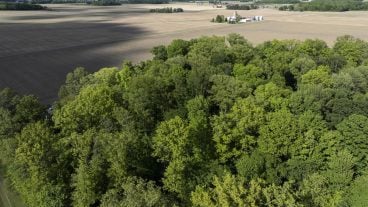

Learn what the requirements are to legally fly a drone in Ohio as well as steps the Ohio Legislature has taken in terms of security concerns.
Read More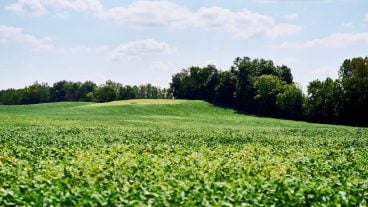
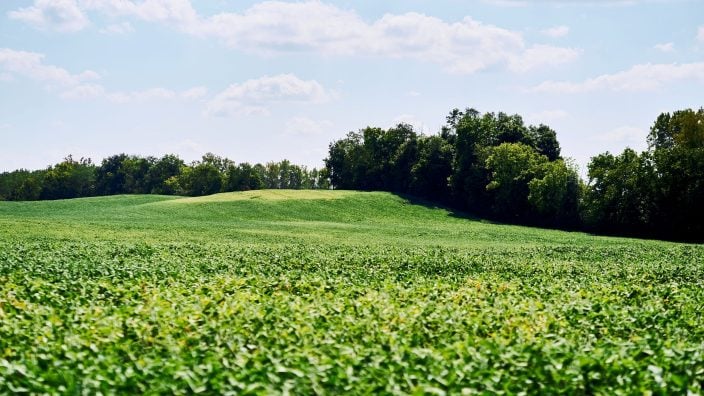
In 2025, about 21 counties are going through a reappraisal or update, and because Ohioans pay taxes one year behind, they will see new property tax bills in January 2026.
Read More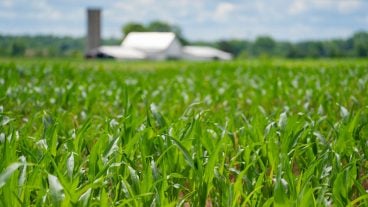
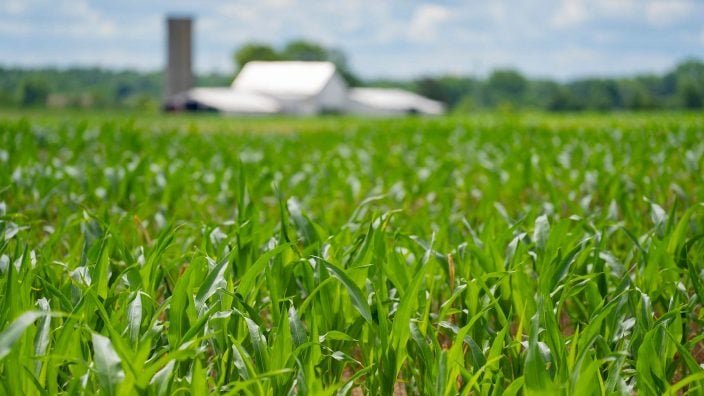
Any unlicensed handlers who use restricted use pesticides will need to have additional training. Farm Bureau will be working on legislation to give employers a choice on how to provide training.
Read More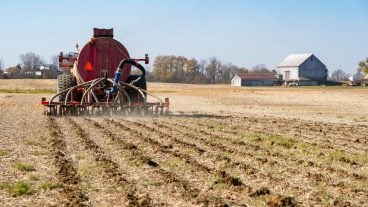
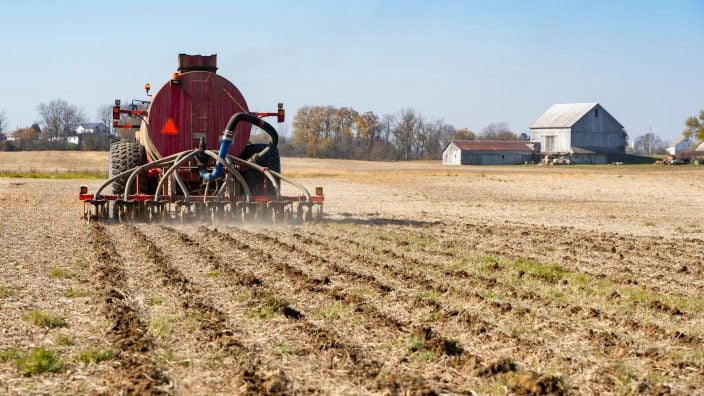
Current Agricultural Use Value is often discussed as a farmland preservation tool, but there are some other tools in the law that landowners can consider.
Read More

Update: As of Feb. 27, 2025, the Financial Crimes Enforcement Network announced no fines, penalties or enforcement action will be taken against companies based on failure to file or update BOI by March 21.
Read More

Update: As of Feb. 27, 2025, the Financial Crimes Enforcement Network announced they would not issue any fines or penalties or take enforcement action against companies based on failure to file or update beneficial ownership information reports by the March 21, 2025, deadline.
Read More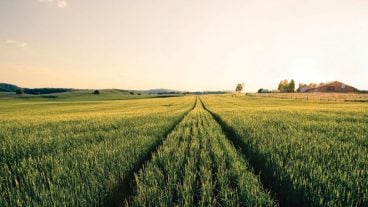

Update: As of Feb. 27, 2025, the Financial Crimes Enforcement Network announced they would not issue any fines or penalties or take enforcement action against companies based on failure to file or update beneficial ownership information reports by the March 21, 2025, deadline.
Read More